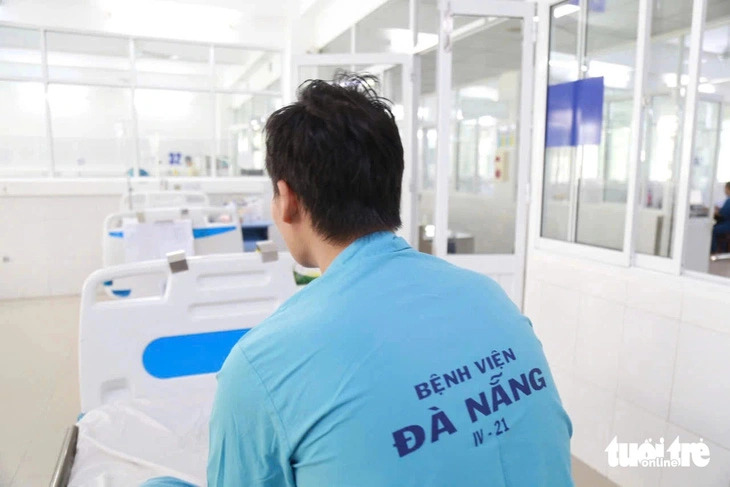A 26-year-old man from Son Tra District in Da Nang City, central Vietnam miraculously survived a 60-minute episode of cardiac arrest after being electrocuted.
Da Nang Hospital confirmed they had saved the young man, identified as D., after he had spent an hour in cardiac arrest.
D. did not recall being electrocuted and only learned what had happened to him after regaining consciousness.
After being revived, D. placed his hand on his chest, excited to feel his heartbeat and exclaiming his gratitude to his medical team, family, and neighbors.
He described the experience as an extraordinary stroke of luck, calling it a second chance at life.
“I feel like I’ve been reborn,” said D.
According to his family, the accident occurred at 4:00 pm on October 24 while D. was on the roof of their home repairing metal sheets which had been damaged by strong winds.
Unfortunately, rain had recently soaked the roof, causing an electrical hazard and leading to D.’s electrocution.
Relatives and neighbors heard his scream, rushed to shut off the power from the tools he had been using, and called for emergency assistance.
D. had no pulse and was not breathing when paramedics arrived. They immediately began performing life-saving measures, including chest compressions, intubation, and manual ventilation for 20-25 minutes before transporting him to the hospital’s emergency department.
By 4:45 pm, D. still had no heartbeat.
The hospital’s emergency team continued compressions and ventilation while initiating extracorporeal membrane oxygenation (ECMO), a life-support technique that temporarily replaces heart and lung function.
|
|
| D. is transferred to the general care unit at Da Nang Hospital in central Vietnam and is expected to be discharged soon. Photo: Doan Nhan / Tuoi Tre |
Specialists from intensive care and anti-poisoning, cardiovascular surgery, and anesthesia worked together to connect D. to a Veno-arterial ECMO (V-A ECMO) system within 10-15 minutes, restoring oxygenation and blood circulation.
Dr. Bui Van Dung, who led the ECMO procedure, explained that D. had been in cardiac arrest for a total of 60 minutes from the time of the incident to the successful ECMO connection.
Upon arrival at the hospital, he faced critical complications, including acute circulatory and respiratory failure, brain damage due to oxygen deprivation, fluid leakage, and multi-organ failure.
D. underwent intensive, multidisciplinary care, including advanced resuscitation and consultations involving several hospital departments.
After more than 100 hours of continuous treatment, his circulation stabilized, and he was weaned off ECMO.
Over the following ten days, his breathing improved, allowing doctors to remove his ventilator and provide extubation.
Dr. Ha Son Binh, head of the intensive care and anti-poisoning unit, described the case as exceptionally critical, with little hope of survival during the first 24 hours.
He credited the patient’s recovery to the dedication of the medical team and the use of advanced critical care techniques, emphasizing that every moment was a race against time and escalating complications.
In the two weeks after the accident, D. has shown substantial improvement and was transferred to a general care unit for further monitoring.
Like us on Facebook or follow us on Twitter to get the latest news about Vietnam!





















































